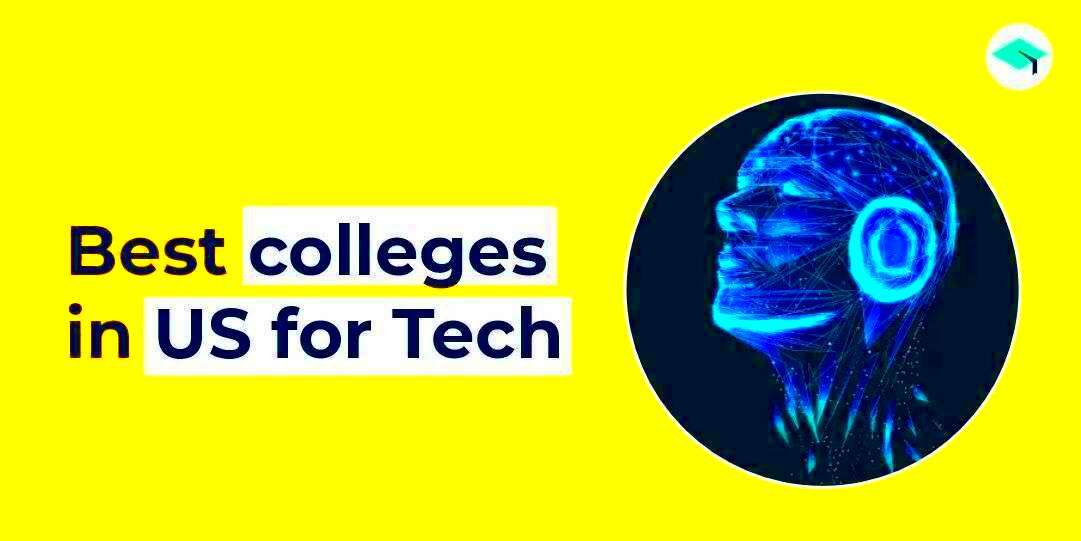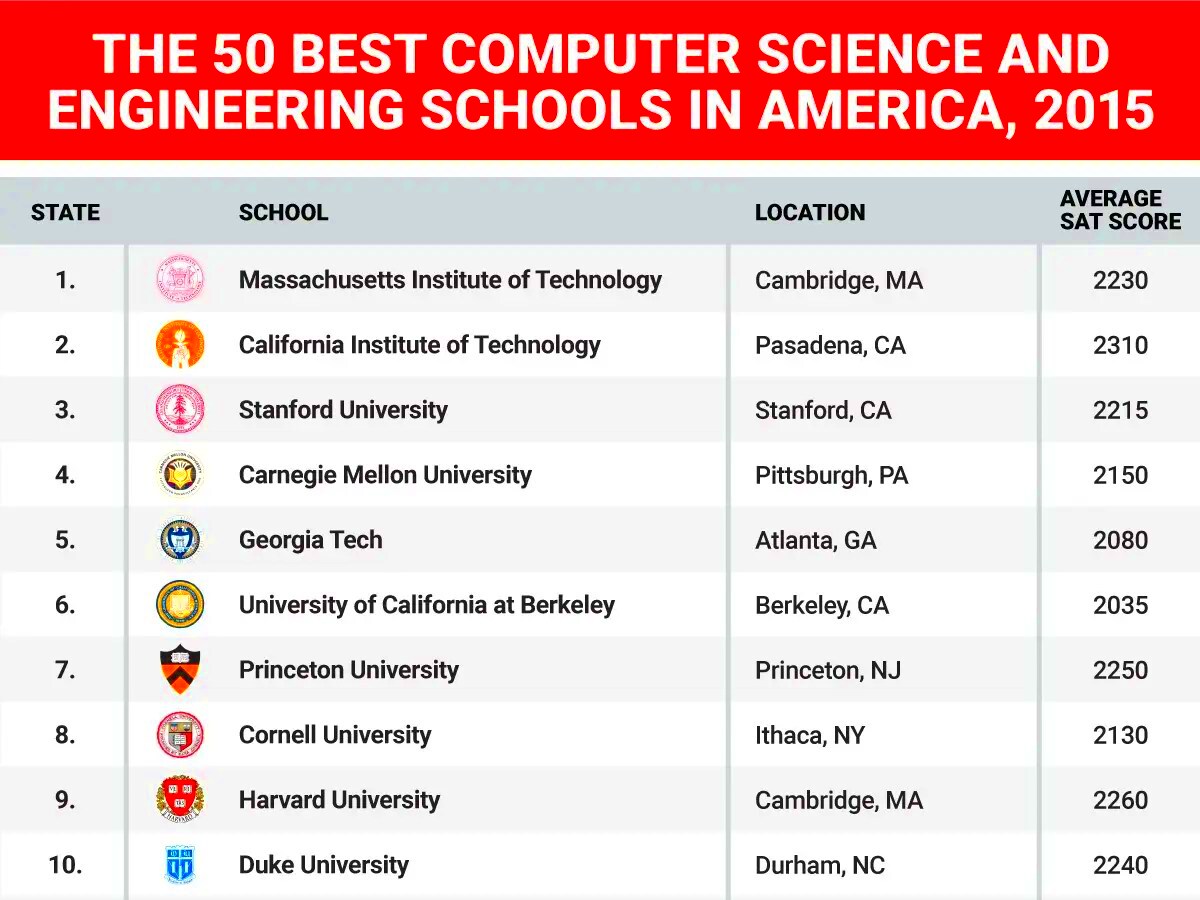Technology education in the USA plays a vital role in shaping the future of countless students. With the rapid advancements in
technology, choosing the right educational path can be a game-changer. Many universities offer comprehensive programs that equip students with the skills needed to thrive in a tech-driven world. Understanding the landscape of
Factors to Consider When Choosing a University

When selecting a university for
technology education, several factors can significantly impact your experience and future career. Here are some key considerations:
- Accreditation: Ensure the university is accredited by a recognized body. This ensures the program meets quality standards.
- Curriculum: Look for a program that offers a diverse and updated curriculum. Topics like artificial intelligence, data science, and software development are crucial.
- Faculty Expertise: Investigate the qualifications and experience of the faculty. Professors with industry experience can provide valuable insights.
- Campus Resources: Check if the university provides labs, libraries, and technology centers that support learning.
- Internship Opportunities: A good program should facilitate internships or co-op positions that offer real-world experience.
- Alumni Network: A strong alumni network can help with mentorship and job placement after graduation.
Overview of Leading Universities for Technology Programs

Several universities in the USA stand out for their exceptional
technology programs. Here’s a quick overview of some top institutions:
| University Name | Program Strengths | Location |
|---|
| Massachusetts Institute of Technology (MIT) | Strong emphasis on research and innovation in technology | Cambridge, MA |
| Stanford University | Close ties to Silicon Valley and entrepreneurial focus | Stanford, CA |
| Carnegie Mellon University | Renowned for computer science and robotics programs | Pittsburgh, PA |
| University of California, Berkeley | Strong research initiatives in technology and engineering | Berkeley, CA |
| California Institute of Technology (Caltech) | Focus on science and engineering with a small student-to-faculty ratio | Pasadena, CA |
These universities are recognized for their commitment to providing quality
technology education, offering students a chance to develop the skills needed for a successful career in the tech industry.
Curriculum and Course Offerings in Technology Education

The curriculum in
technology education is dynamic, designed to keep pace with rapid advancements in the field. Universities aim to provide students with both theoretical knowledge and practical skills. Most programs include core courses, electives, and opportunities for specialization. Here’s a breakdown of what you might expect in a typical
technology program:
- Core Courses: These foundational courses often cover topics like programming, algorithms, data structures, and computer networks.
- Specialized Electives: Students can choose electives based on their interests, such as cybersecurity, artificial intelligence, or software engineering.
- Capstone Projects: Many programs require a capstone project where students apply their learning to solve real-world problems.
- Industry Certifications: Some universities offer courses that prepare students for industry-recognized certifications, boosting their employability.
Additionally, interdisciplinary courses that integrate technology with business, health, or environmental studies can enhance a student's versatility. This broad approach not only prepares students for various roles in the tech industry but also equips them with critical thinking and problem-solving skills.
Opportunities for Hands-On Experience and Internships
Hands-on experience is essential in technology education, allowing students to apply their knowledge in real-world scenarios. Many universities emphasize practical learning through various opportunities, including:
- Internships: Most programs have partnerships with local companies, enabling students to secure internships that provide invaluable industry experience.
- Co-op Programs: Cooperative education programs allow students to alternate between academic study and paid work experience, enhancing their resumes.
- Research Projects: Students can participate in faculty-led research initiatives, often working with cutting-edge technology.
- Hackathons and Competitions: These events encourage students to work in teams, solving problems within a time limit, fostering teamwork and creativity.
These experiences not only help students develop their technical skills but also allow them to build professional networks that can be beneficial after graduation.
Student Support Services and Resources
Universities understand that student success goes beyond academics, so they offer various support services and resources. Here’s a look at what you can expect:
- Academic Advising: Advisors help students select courses, plan their academic paths, and ensure they meet graduation requirements.
- Tutoring Services: Many universities provide tutoring in subjects like math, programming, and writing, helping students who need extra assistance.
- Career Services: These departments assist students with resume writing, interview preparation, and job placements, ensuring they are ready for the workforce.
- Mental Health Resources: Counseling services are available for students facing stress, anxiety, or other challenges.
- Networking Events: Workshops, seminars, and networking events connect students with industry professionals and alumni.
With these services in place, students can focus on their education and personal growth, knowing they have support every step of the way.
Success Stories from Graduates
Success stories from graduates of technology programs can be incredibly inspiring. These individuals often share how their university experiences shaped their careers and led them to exciting opportunities in the tech world. Here are a few notable examples:
- Emma, Software Engineer at a Tech Giant: After graduating with a degree in Computer Science, Emma secured an internship at a major tech company. This experience paved the way for a full-time position where she now leads projects focused on artificial intelligence.
- James, Startup Founder: James always had a passion for entrepreneurship. With the skills he gained in his technology program, he launched his own startup, focusing on innovative app development. Today, his app has over a million downloads!
- Maria, Data Scientist: Maria’s journey in data science began during her university days, where she worked on various research projects. She now works for a leading analytics firm, helping businesses make data-driven decisions.
These stories highlight the diverse paths graduates can take after completing their technology education. They illustrate how the right program can lead to fulfilling careers, whether in established companies or entrepreneurial ventures.
Frequently Asked Questions
Choosing the right university for technology education can raise many questions. Here are some common queries and their answers:
What should I look for in a technology program?
- Focus on accreditation, curriculum, faculty experience, and internship opportunities.
Are online programs as effective as traditional ones?
- Yes, many online programs offer the same quality education, flexibility, and support as on-campus courses.
How important are internships?
- Very! Internships provide practical experience and networking opportunities, making you more attractive to employers.
What if I change my mind about my major?
- Many universities offer options to switch majors or take elective courses in different areas of technology.
If you have more questions, don’t hesitate to reach out to admissions counselors or current students for insights.
Conclusion on Choosing the Right University
Choosing the right university for technology education is a significant decision that can shape your future. It's essential to consider factors like program reputation, curriculum, and available resources. Take the time to research various institutions, attend campus tours, and speak with current students and alumni.Ultimately, the best university for you will align with your career goals and personal preferences. Remember, your education is not just about gaining knowledge but also about building connections, gaining practical experience, and discovering your passion within the vast field of technology. So, weigh your options carefully and choose a path that excites you!
 When selecting a university for technology education, several factors can significantly impact your experience and future career. Here are some key considerations:
When selecting a university for technology education, several factors can significantly impact your experience and future career. Here are some key considerations: Several universities in the USA stand out for their exceptional technology programs. Here’s a quick overview of some top institutions:
Several universities in the USA stand out for their exceptional technology programs. Here’s a quick overview of some top institutions: The curriculum in technology education is dynamic, designed to keep pace with rapid advancements in the field. Universities aim to provide students with both theoretical knowledge and practical skills. Most programs include core courses, electives, and opportunities for specialization. Here’s a breakdown of what you might expect in a typical technology program:
The curriculum in technology education is dynamic, designed to keep pace with rapid advancements in the field. Universities aim to provide students with both theoretical knowledge and practical skills. Most programs include core courses, electives, and opportunities for specialization. Here’s a breakdown of what you might expect in a typical technology program:
 admin
admin








